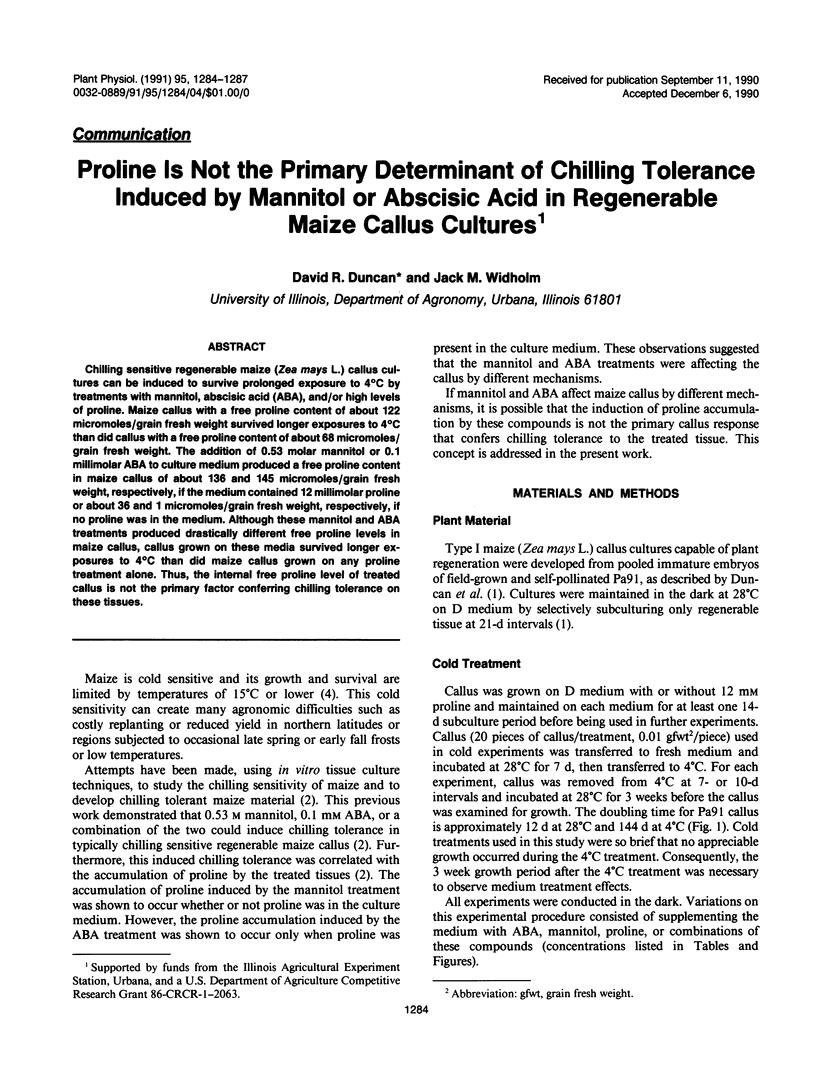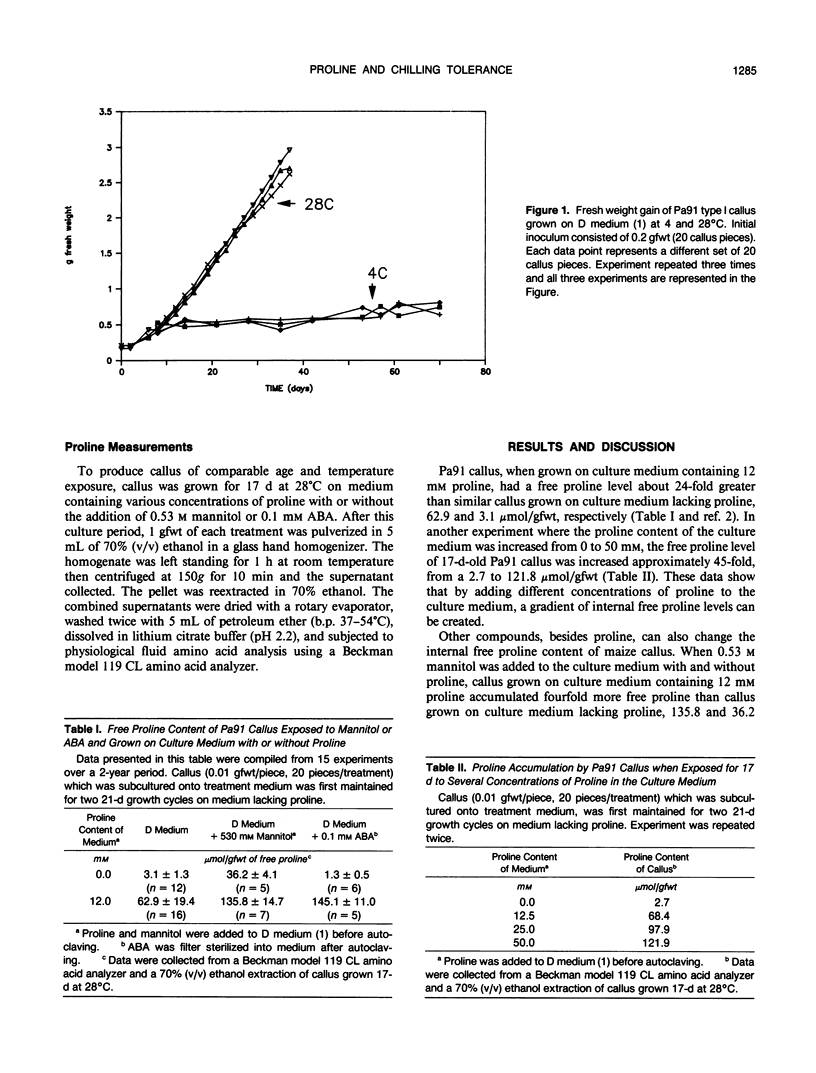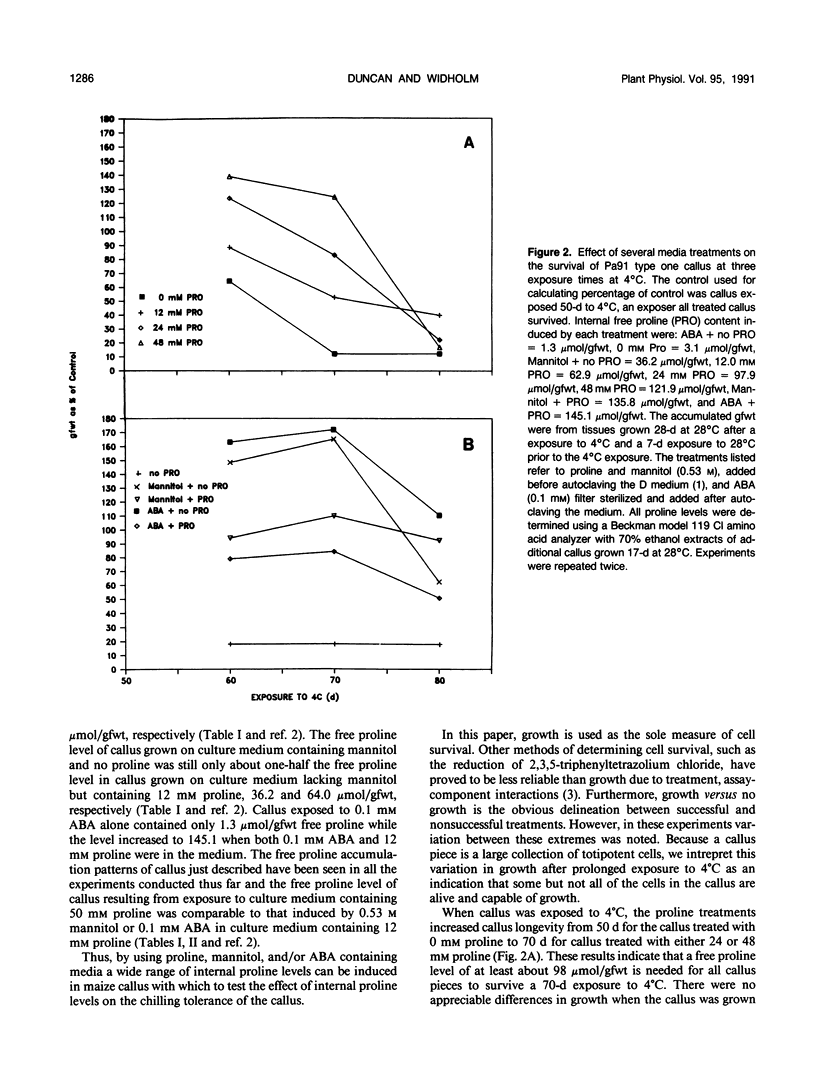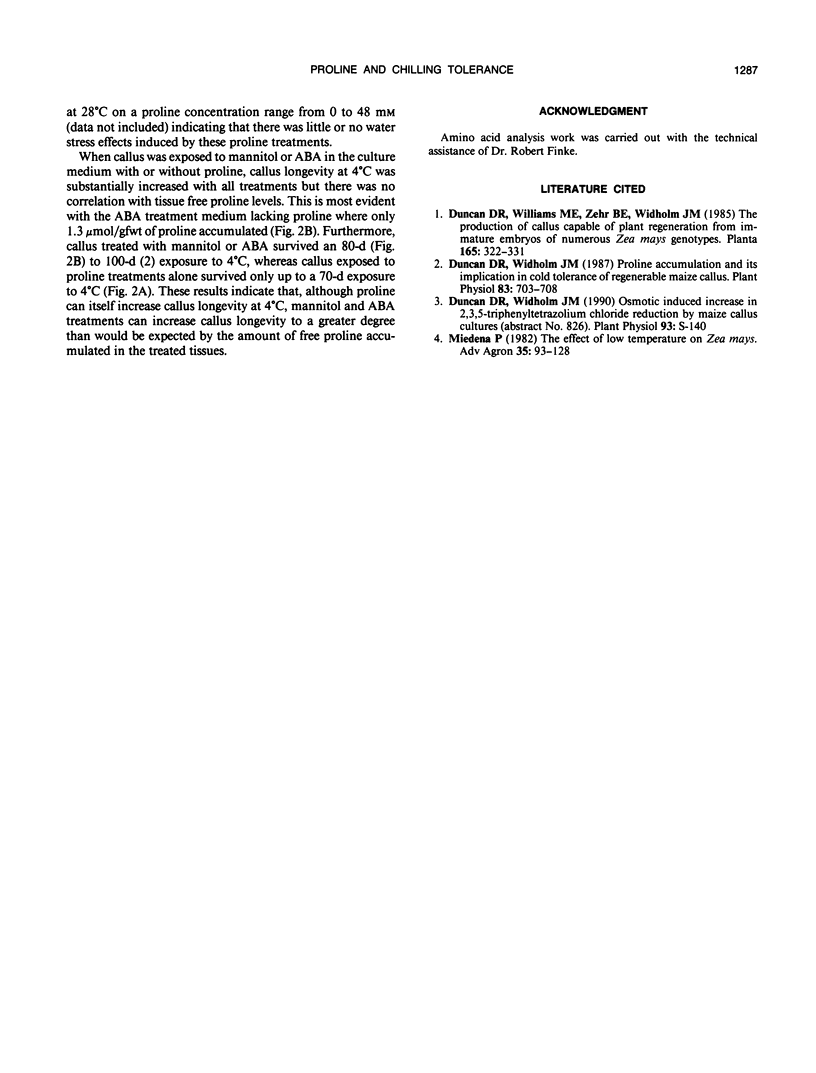Abstract
Chilling sensitive regenerable maize (Zea mays L.) callus cultures can be induced to survive prolonged exposure to 4°C by treatments with mannitol, abscisic acid (ABA), and/or high levels of proline. Maize callus with a free proline content of about 122 micromoles/grain fresh weight survived longer exposures to 4°C than did callus with a free proline content of about 68 micromoles/grain fresh weight. The addition of 0.53 molar mannitol or 0.1 millimolar ABA to culture medium produced a free proline content in maize callus of about 136 and 145 micromoles/grain fresh weight, respectively, if the medium contained 12 millimolar proline or about 36 and 1 micromoles/grain fresh weight, respectively, if no proline was in the medium. Although these mannitol and ABA treatments produced drastically different free proline levels in maize callus, callus grown on these media survived longer exposures to 4°C than did maize callus grown on any proline treatment alone. Thus, the internal free proline level of treated callus is not the primary factor conferring chilling tolerance on these tissues.
Full text
PDF



Selected References
These references are in PubMed. This may not be the complete list of references from this article.
- Duncan D. R., Widholm J. M. Proline accumulation and its implication in cold tolerance of regenerable maize callus. Plant Physiol. 1987 Mar;83(3):703–708. doi: 10.1104/pp.83.3.703. [DOI] [PMC free article] [PubMed] [Google Scholar]


